The Minnesota Northstar Geriatric Workforce Enhancement Program (MN GWEP) was formed in 2019 to improve the health and care of older adults across the state. MN GWEP facilitates training and support with collaborating clinics. The goal is to ensure that people across the state have access to care specialized to their needs, developing the field of geriatrics in the way that we view pediatrics.
To ensure seamless care, an interprofessional approach is critical, and MN GWEP has created training toolkits for health professionals, as well as for community outreach and engagement.
In Minnesota, studies show that more than 90 percent of care provided to vulnerable adults is provided by family and friends. MN GWEP has a repository of educational resources for caregivers, clinicians, instructors and students. By offering free and public interprofessional geriatric learning opportunities, they are improving the health of older adults across the state.
The MN GWEP team includes widely-known experts in geriatrics and aging, so it is natural that this team cooperates with other leading experts to advance the GWEP mission. Whether through online self-paced educational toolkits or the Interprofessional Geriatric Case Competition, the MN GWEP team works interprofessionally to provide greater access to community education in aging and dementia, develop toolkits for things like maximizing mobility in older adults, improve geriatrics training in health professions, and transform primary care clinical training and practice sites to provide age-friendly care.
Driving Innovation & Discovery
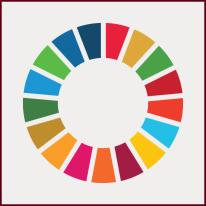
Sustainable Development Goal Research Grants Program
The Global Programs and Strategy Alliance system-wide Sustainable Development Goals initiative in collaboration with OACA and MNDrive Environment has announced the 2022 Request for Proposals for the SDG Initiative research grant competition. This funding opportunity was established to support U of M faculty, academic staff, and researchers in using the SDGs as a framework for research that addresses one or more of these goals, either globally or locally. Applications are due by 4 p.m. on Sept. 30.
Advancing Interprofessional Education & Training
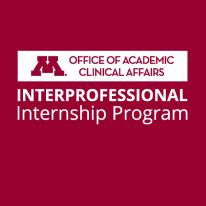
Apply for the Interprofessional Internship Program
OACA hosts an internship program that competitively identifies student interns and matches them to projects proposed by health care system partners. We invite student applications for an internship position during the 2022-2023 academic year. Selected interns will be partnered with a community partner organization and will undertake a project focused on advancing interprofessional practice and education. Interns can be enrolled in any University health professions program, with an interest in health care systems, community health interprofessional practice or education. Internships will average five paid hours/week. Applications will be accepted Aug. 15 through Sept. 12.
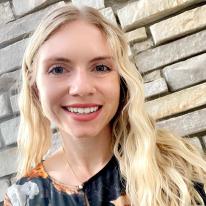
Interprofessional Internship Provides Real World Experience for Solving Big Problems in Health Care
Ally Taubenheim, DNP, APRN, CPNP, believes in interprofessional education (IPE). “It sounds simple, but I have learned that one of the greatest challenges to making IPE a reality is inviting people to dream bigger and envision health care differently to improve the health and wellbeing of patients, communities, staff and learners,” she said. “IPE is key to improving patient care delivery models and population health outcomes, and is an avenue to advance equity among team members and patients.”
Partnering with Communities
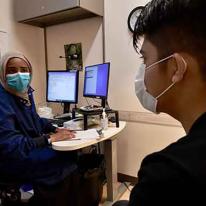
Community-University Health Care Center: Working Toward A Healthier Community Since 1966
Founded by the University of Minnesota in 1966, the Community-University Health Care Center (CUHCC) is Minnesota’s first community health center. Located in the heart of south Minneapolis, CUHCC provides comprehensive team-based care to more than 10,600 patients each year. Using an integrated care model, CUHCC offers a one-stop solution where families can receive all their health care under one roof. National Health Center Week (Aug. 7-13) is an annual celebration with the goal of raising awareness about the mission and accomplishments of America’s community health centers.

Apply for the Community Health Collaborative Pilot Grant
Offered by Clinical and Translational Science Institute's Community Engagement office, the Community Health Collaborative pilot grant supports research projects that address community-identified health issues. Grants must be co-led by a community organization and a University faculty researcher.
U-Wide Events and Opportunities
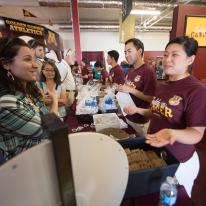
Goldy vs. Cancer at the MN State Fair
Let’s defeat cancer! This year at the Minnesota State Fair the Masonic Cancer Center wants all Minnesotans to learn about treatment and prevention for cancer which affects nearly half of the state’s population. On Friday, Aug. 26, discover leading-edge treatments, meet the doctors and scientists researching the latest breakthroughs, and ask experts your questions.



